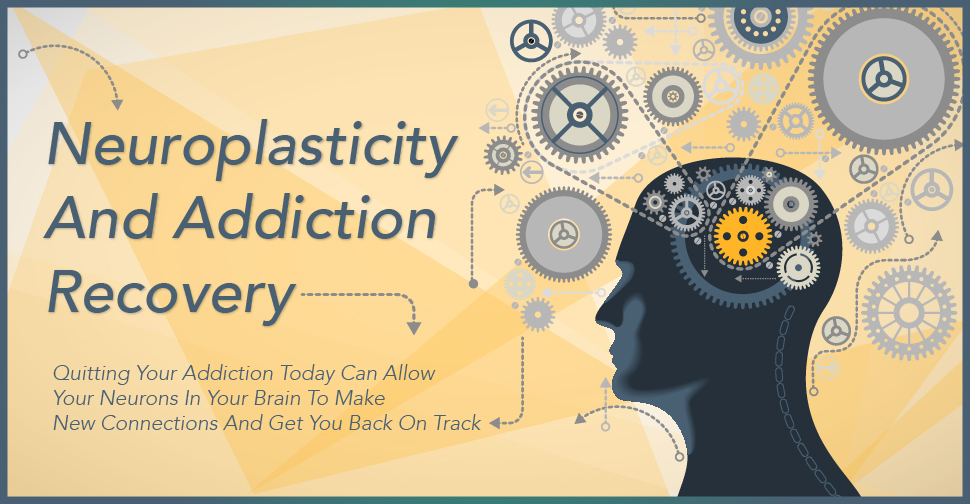
Until recently, scientists thought that the neural pathways in our brains were formed and rigid by the time we reached adulthood. That is far from the truth! What we now know is that our brains can constantly adapt and our neurons can form new pathways, even when our brains become damaged. Our brains continue to form new pathways our entire lives. Because of this, neurons in our brains are dynamic and not stagnant. For example, our brains create a preferred pathway for neurons to travel, sending communication signals from neuron to neuron
If our brain suffers an injury, such as a stroke or other trauma, new neurons will travel around the damaged area and form a new communication connection. This is called neuroplasticity. Neuroplasticity is the brain’s ability to allow tissue to grow, adapt, and change. Neuroplasticity can happen even without damage, such as learning a new skill. Now that we’ve established just what neuroplasticity is, we can discuss how it affects the brain of an individual addicted to drugs or alcohol.
A Short Analogy
It might help to use an analogy when thinking about neuroplasticity. Pretend you are walking through the woods. It is fall and the leaves are turning their beautiful colors. You walk this path every day to get to work. Overtime the path becomes familiar and worn. Now pretend that last night a storm rolled in and several trees have fallen in your path. You cannot travel the way with which you are familiar anymore. You must set out and find a new path to get to work. It might be a pain at first, but overtime, this new path becomes familiar and comfortable to you.
This is exactly how our brains work. Our brains develop neural pathways and the more familiar the path, the faster the neurons travel. But if there has been damage, our neurons must find a new path. Our neurons must reroute and rewire. Over time, this new path becomes just as easy for our neurons to travel.
Neuroplasticity And Addiction
When we use drugs and alcohol, we are changing the chemistry of our brains. Getting a high from drugs or alcohol can be pleasurable and those addicted to drugs or alcohol like to repeat those feelings. After some time the effects of drugs and alcohol change the brain. When a person becomes addicted to a substance, this changes parts of the brain that deal with: decision-making, stress regulation, rewards, memory, and emotion.
However, because our brains have neuroplasticity, we can rewire them. Even though drugs and alcohol change certain aspects of our brain, we can learn new coping skills and teach our brains new ways to rewire. Because of this, our brains permit the new coping skills to become imprinted. It’s amazing how our brains can adapt to new situations.
Neuroplasticity And Hope For Those Struggling
Neuroplasticity gives hope to those struggling from an addiction. Addiction is not permanent. While there may be damage to your brain due to your addiction, quitting your addiction today can get you and your brain on the right track. If you have been told that addiction is permanent, this is absolutely FALSE. Our brains can change and adapt to new situations. Even though your brain is used to drugs and/or alcohol now, you can rewire your mind and end your addiction. Now is the best time to seek rehab and counseling for your addiction. There is healing and hope.
Hebb’s Law And addiction
If you are not yet convinced of the linkage of neurons, neuroplasticity, and addiction, here’s one more bit of information for you. So what is Hebb’s Law? Well, in 1949, neuroscientist Donald Hebb recognized that neurons that fire together form stronger bonds. Thus the famous phrase, “neurons that fire together, wire together” was born. This forms the basis of repetitive thoughts. The more a person thinks about using drugs or alcohol or chooses to use them, the stronger the bond and the easier it is for the addicted individual to make certain choices as time progresses. If you make motivated and repetitive choices, your neurons will connect in a way to support your behaviors and thoughts. But, by rewiring your brain’s thoughts and neuron pathways, you are taking back control of your life. Neuroplasticity can be used as a force of good as well.
Take Back Your Life
 Your brain is chemically altered when you use drugs and alcohol. Drugs and alcohol are controlling your life. It’s time to take charge. Neuroplasticity and the brain’s ability to adapt to new coping strategies offers hope. Seek a counselor or rehab facility today. We’d love to hear from you, so please contact us at DrugRehab.org. It’s time to get your life back. Let’s do this, together.
Your brain is chemically altered when you use drugs and alcohol. Drugs and alcohol are controlling your life. It’s time to take charge. Neuroplasticity and the brain’s ability to adapt to new coping strategies offers hope. Seek a counselor or rehab facility today. We’d love to hear from you, so please contact us at DrugRehab.org. It’s time to get your life back. Let’s do this, together.

